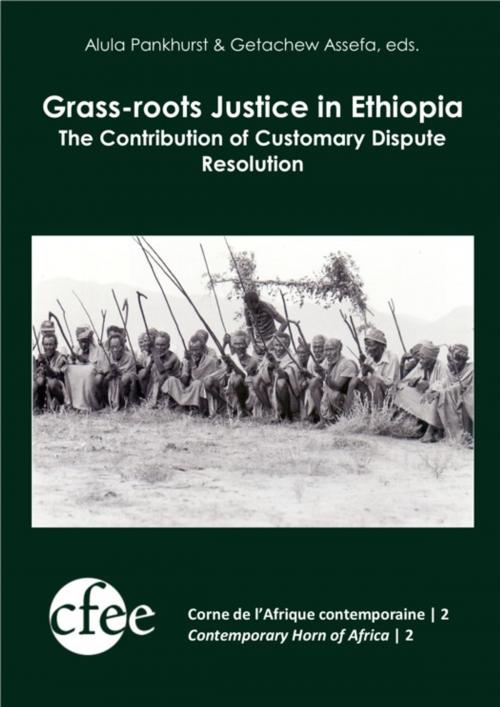Grass-roots Justice in Ethiopia
The Contribution of Customary Dispute Resolution
Nonfiction, Social & Cultural Studies, Social Science, Cultural Studies, Customs & Traditions| Author: | Collectif | ISBN: | 9782821872349 |
| Publisher: | Centre français des études éthiopiennes | Publication: | July 28, 2016 |
| Imprint: | Centre français des études éthiopiennes | Language: | English |
| Author: | Collectif |
| ISBN: | 9782821872349 |
| Publisher: | Centre français des études éthiopiennes |
| Publication: | July 28, 2016 |
| Imprint: | Centre français des études éthiopiennes |
| Language: | English |
This book presents a timely review of the relations between the formal and customary justice systems in Ethiopia, and offers recommendations for legal reform. The book provides cases studies from all the Region of Ethiopia based on field research on the working of customary dispute resolution (CDR) institutions, their mandates, compositions, procedures and processes. The cases studies also document considerable unofficial linkages with the state judicial system, and consider the advantages as well as the limitations of customary institutions with respect to national and international law. The editor's introduction reviews the history of state law and its relations with customary law, summarises the main findings by region as well as as on inter-ethnic issues, and draws conclusions about social and legal structures, principles of organization, cultural concepts and areas, and judicial processes. The introduction also addresses the questions of inclusion and exclusion on the basis of gerontocratic power, gender, age and marginalised status, and the gradual as well as remarkable recent transformations of CDR institutions. The editor's conclusion reviews the characteristics, advantages and limitations of CDR institutions. A strong case is made for greater recognition of customary systems and better alliance with state justice, while safeguarding individual and minority rights. The editors suggest that the current context of greater decentralization opens up opportunities for pratical collaboration between the systems by promoting legal pluralism and reform, thereby enhancing local level justice delivery. The editors conclude by proposing a range of options for more meaningful partnership for consideration by policy makers, the legal profession and other stakeholders. In memory of Aberra Jembere and Dinsa Lepisa. Cover: Elders at peace ceremony in Arbore, 1993.
This book presents a timely review of the relations between the formal and customary justice systems in Ethiopia, and offers recommendations for legal reform. The book provides cases studies from all the Region of Ethiopia based on field research on the working of customary dispute resolution (CDR) institutions, their mandates, compositions, procedures and processes. The cases studies also document considerable unofficial linkages with the state judicial system, and consider the advantages as well as the limitations of customary institutions with respect to national and international law. The editor's introduction reviews the history of state law and its relations with customary law, summarises the main findings by region as well as as on inter-ethnic issues, and draws conclusions about social and legal structures, principles of organization, cultural concepts and areas, and judicial processes. The introduction also addresses the questions of inclusion and exclusion on the basis of gerontocratic power, gender, age and marginalised status, and the gradual as well as remarkable recent transformations of CDR institutions. The editor's conclusion reviews the characteristics, advantages and limitations of CDR institutions. A strong case is made for greater recognition of customary systems and better alliance with state justice, while safeguarding individual and minority rights. The editors suggest that the current context of greater decentralization opens up opportunities for pratical collaboration between the systems by promoting legal pluralism and reform, thereby enhancing local level justice delivery. The editors conclude by proposing a range of options for more meaningful partnership for consideration by policy makers, the legal profession and other stakeholders. In memory of Aberra Jembere and Dinsa Lepisa. Cover: Elders at peace ceremony in Arbore, 1993.















